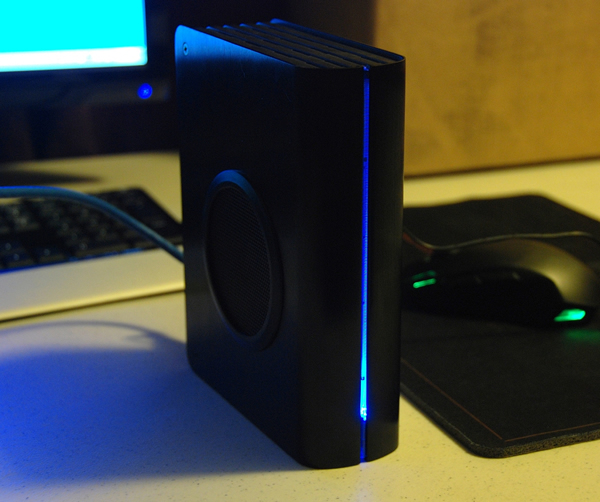Closing Thoughts
As shown in the various benchmarks we ran, the combination of the external enclosure, solid-state drive, and PCIe adapter card produced some very fast transfer rates. Granted we will never see speeds this fast with a traditional 3.5" spinning hard drive, but it is reassuring to know that the potential for higher speeds is there.
The cooling fan on the StarTech enclosure is fairly quiet and produces enough airflow to keep a standard hard drive cool even under heavy use. The on/off switch for the fan is a nice touch as you can disable the fan if you are only doing a quick transfer.

Overall the enclosure is a nice product. I like the My Book styling and ease of use. The brushed aluminum side panels will be more immune to fingerprints than the glossy black surface we have seen from other enclosures. My only complaint with the enclosure is the short USB 3.0 cable that is included.
As of writing, the StarTech 3.5" SuperSpeed USB 3.0 Hard Drive Enclosure with Fan can be found for ~$45. This is slightly more expensive than your average USB 2.0/eSATA enclosure, but in our opinion the small price difference can be easily justified considering this is brand new technology that can only keep moving forward.
At this point, not even the speediest of SSDs will come close to maximize USB 3.0's throughput rates, let alone a standard hard drive. For storage purposes, USB 3.0 seems to be competing with already established standards like eSATA. We can easily see the former taking precedence in the near future, and pricing is not a deciding factor, so ultimately we recommend you pick based on the technology for which you have support in your current hardware. If you have none, then go USB 3.0...
The 2-Port PCI Express SuperSpeed USB 3.0 Card Adapter sells for $31.99 which happens to be the cheapest 2-port card adapter on Newegg.com. You can always bypass the expense if your motherboard already supports USB 3.0, but unless you are running a new system odds are you will need this card.
Update: We want to point something that we discovered shortly after publishing this review. All tests posted here were performed using the PCI Express add-in card on the x16 slot of our Intel H55 board. Moving the StarTech card to a x4 slot resulted in an evident loss of performance, with benchmarks showing a ~100MB/s loss when testing an external SSD. In other words, note that this card will perform to its maximum potential when installed in an x16 slot.